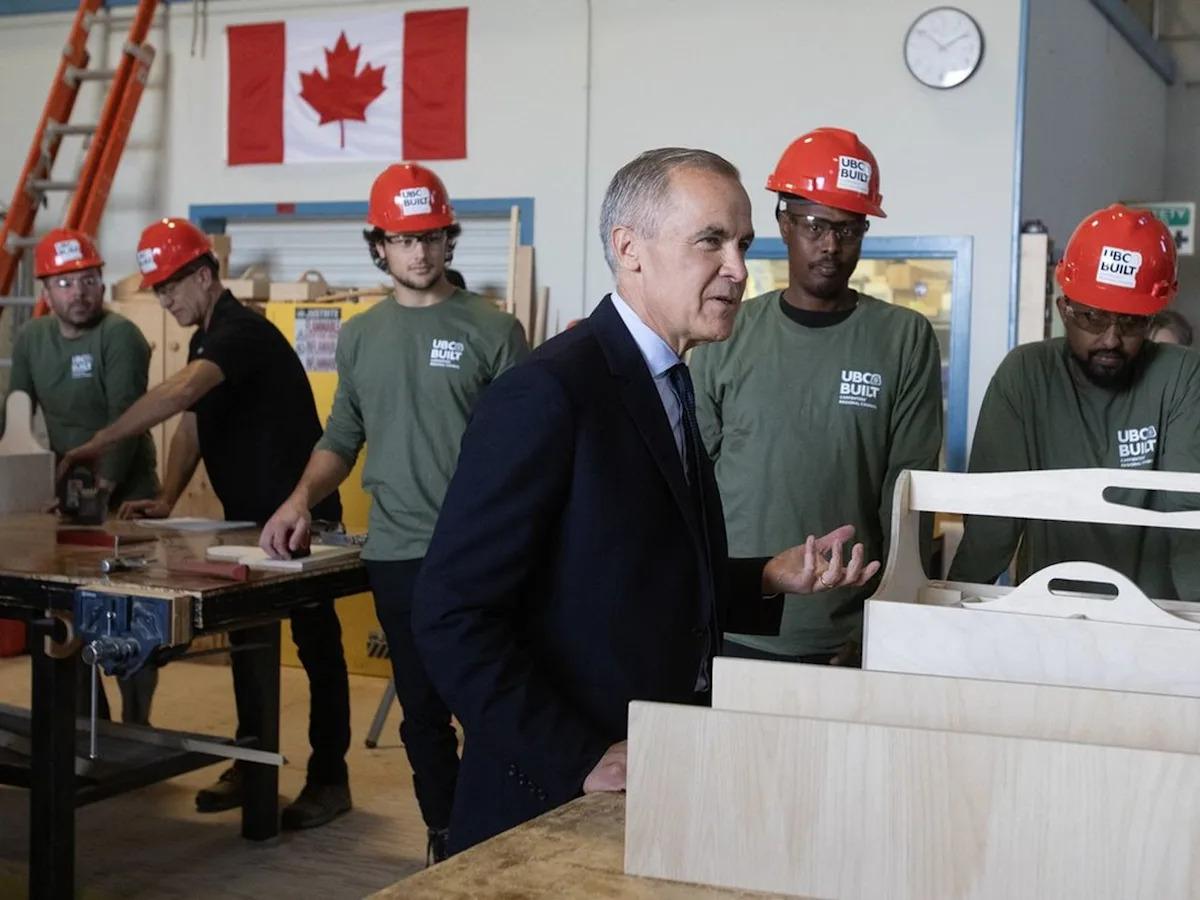Last month, alongside building trades representatives from across the country, including B.C., I was pleased to join Prime Minister Mark Carney as he announced two B.C. projects among the first five under Ottawa’s Building Canada Act. These projects are the first bricks in the federal government’s plan to build a stronger, more independent nation.
And while that federal support is a cause for celebration, let’s not pop the Champagne corks just yet. How those projects are completed will make all the difference between simply building a new terminal or mine, and building a stronger nation. Done right, those projects can be investments not just for this generation, but for generations to come — coast to coast to coast.
Consider what it takes to get these projects done. Often in a remote location, projects are usually a fly-in, stay in camp, and fly-out employment opportunity for thousands of workers from B.C. and across Canada. This is much easier said than done. Workers must leave at least a day in advance of the start of their shift, often experiencing travel delays, and sometimes flights are unable to land due to weather conditions in remote areas such as Kitimat. On a recent trip to LNG Canada, I personally experienced two aborted landing attempts, as well as a reroute and unscheduled hotel stay back in Vancouver. Most Canadians do not have to endure these types of challenges when reporting to work.
LNG Canada is one example of major infrastructure projects where workers fly in and fly out from across the country. Numerous examples abound: Site C in B.C.; oil projects in Alberta; potash in Saskatchewan; dams in Manitoba; EV battery plants in Ontario; mines in Quebec, and mining and oil projects in Atlantic Canada. Not to mention the roads we drive on, the hospitals we visit for care, and the schools we attend to learn. Unionized building trades workers build Canada. Full stop.
Now consider the bigger vision of building a stronger Canada. Realizing that national vision depends on expanding and strengthening our skilled trades workforce. The government recognized this in the only amendment made to Bill C5 by stating in the law itself that it would create “good-paying, unionized jobs.” This isn’t a nice-to-have, it is table stakes toward a better Canada. If we want people to put on a pair of steel-toed boots, jump on a plane, live away from their families, and get their hands dirty building up our country, we need to invest in them.
Any time the government of Canada puts public money on the table for a project, it should come with strong labour conditions — prevailing wages and benefits, as well as apprenticeship requirements and local and Indigenous diverse hiring obligations. Including labour and apprenticeship conditions on nation-building projects will set the path for other projects across the construction sector and ensure Canada continues to produce some of the best tradespeople in the world.
The Building Canada Act is a once-in-a-lifetime opportunity to inspire and support the next generation of skilled tradespeople. And yet, in March, several federal apprenticeship grants programs were sunsetted, removing critical support from apprentices. Ottawa needs to reinstate the Canadian Apprenticeship Services and Apprenticeship Incentive and Completion Grants to support a full, continuous supply of skilled workers.
We know these types of measures can be game changers. Our office continues to get inquiries every week about the clean economy investment tax credits introduced in the 2023 fall economic statement. We are seeing construction wages rising, more demand for apprenticeships, and many new project proponents engaging with our unions to ensure that projects move forward, faster, with well-paid unionized jobs. Investment tax credits for the nuclear and biomass sectors unfortunately died on the order paper last fall. Reviving those credits will attract more Canadians to learn a trade, which will mean getting more shovels in the ground faster, and seeing the successful completion of projects sooner, more safely and more efficiently.
Time is also of the essence; we are already feeling the impact of today’s economic uncertainty due to the recent deferral of projects. Getting shovels in the ground quickly will reassure the world, and investors, that Canadians are putting their backs into making our economy even stronger.
And we will be able to look back with pride and say: “We built a better nation, together.”
Sean Strickland is executive director of Canada’s Building Trades Unions.

